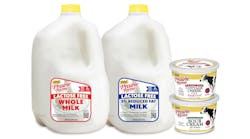Three primary advantages quickly come to mind when you consolidate your lubricant audit into your overall Plant Maintenance Audit Program. First, lubricant audits are a good predictor of potential maintenance problems. Second, they can provide important recommendations regarding food safety. Finally, when used correctly they can provide the information necessary to properly leverage your lubricant costs.
As anyone who has operated an old jalopy knows, once you need to add a quart of oil at every gas stop it is only a matter of time before you experience a major operational breakdown. As with any other audit system, this audit should begin by reviewing equipment manuals to establish the recommended lubricant usage level for each piece of operational equipment. Once this baseline is in place, the audit team needs to focus on operational/maintenance records, which will identify frequency of use and the current volume used per application. By monitoring this data, the auditors can see when usage begins to run higher than recommended. Then preventive measures can be scheduled to avert untimely major breakdowns.
MRO Q&A is a monthly problem-solving column for maintenance, repair and operational issues.
To pose a question for answering online click here

